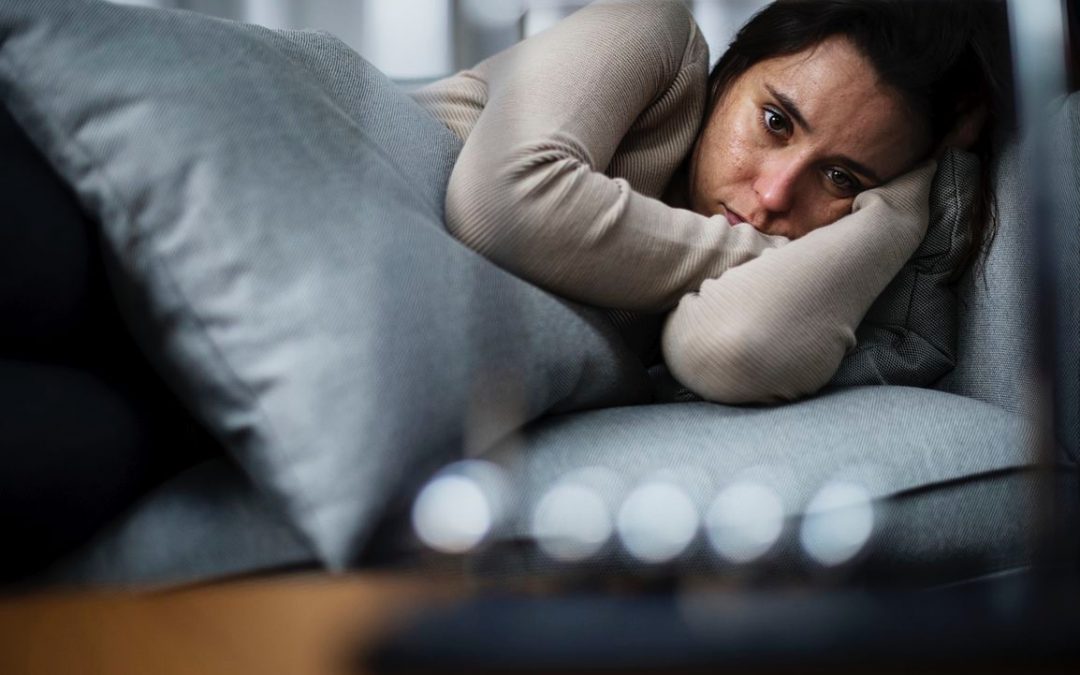As internet search engines become more readily available on our technological devices, it is no surprise that people are becoming more reliant on self-diagnosing when they experience pain, distress, or other symptoms. While there are pros to having access to medical and mental health information online, there are increasing concerns with people taking matters into their own hands and trying to self-diagnose.
One of the main conditions that many people try to self-diagnose is depression. However, they neglect to understand that there is a difference between feeling depressed and having depression. While both circumstances can be concerning, having a diagnosis of depression can cause serious complications to one’s mental and physical health if left untreated.
It is essential to acknowledge the difference between the feeling of depression and the condition of depression to accurately curate the most effective treatment plan for a client.
Depression as a Feeling
In today’s society, it is not uncommon for people to toss around the word “depression” without truly understanding the distress that it can cause on an individual. In the same way, some people may think that the word seems as if it is used so often that it may no longer activate a conscious red flag.
No one is a stranger to the feeling of sadness or lowness. For most people, feelings of sadness are a normal response to life. For example, experiences of being let down, experiencing grief, or conflict with friends can trigger these feelings. Typically, these feelings of sadness come and go. They may motivate you to isolate yourself or stay at home for a few days, but they will likely dissipate over time.
Many people talk about these temporary experiences of sadness as feeling depressed. For several reasons, it makes sense to identify feelings of emptiness, lowness, loneliness, or general sadness as depression. However, relating these feelings of sadness to depression can be concerning because depression in and of itself does not go away on its own. If you or your loved one identifies with feelings of depression, it is vital to actively seek treatment so that symptoms do not worsen or become unmanageable over time.
Depression as a Diagnosis
It is clinically accurate to say that depression is a complex mental health disorder that affects all areas of an individual’s life. Symptoms can range in severity, but typically for those that struggle with diagnosed depression, symptoms significantly impair an individual’s ability to function normally in their daily life.
There are several signs and symptoms that may lead an individual to believe that they can accurately self-diagnose depression. If you or your loved one have displayed any of these symptoms daily in the last two weeks, consider seeking an evaluation from a mental health professional. Signs and symptoms can include:
- Persistent sad or anxious mood
- Feelings of hopelessness
- Feelings of guilt or worthlessness
- Feeling restless
- Increased irritability
- Decreased energy
- Issues with concentration, memory, or decision-making
- Changes in sleep or appetite
- Loss of interest in seemingly pleasurable activities
- Existential distress
- Suicidal ideation
- Self-destructive behavior
There are several different types of depression. When people refer to general depression, they are likely referring to major depressive disorder (MDD). The other most common form of depression is called persistent depressive disorder (or dysthymia), which typically involves more mild symptoms of depression, although the symptoms last much longer.
Other types of depression include:
- Perinatal depression, which occurs during pregnancy
- Postpartum depression, which occurs after delivery of a baby
- Seasonal affective disorder, which occurs with the changes in seasons
- Depression with additional psychosis, which is a severe form of depression that involves experiences of delusions and hallucinations
Treatment Recommendations and Next Steps
If you or your loved one experience an off-day or an off-week when it comes to feelings of sadness, it is essential to lean into the benefits of self-care. Practicing self-care activities helps strengthen mental and physical health.
Another easy way to battle feelings of sadness is by practicing mindfulness. Mindfulness helps an individual tune in to the present moment as fully as possible, which challenges intrusive thoughts and reminds a person that right now is all that they will ever have.
When coping mechanisms like these do not seem to provide clarity or comfort, professional treatment may be necessary. The most effective treatment to battle depression is a combination of psychotherapy and medication.
It is important to give your medication an adequate amount of time to work with your individual chemistry before giving it a fair judgment. It is also essential to address your own personal biases of taking medication for mental health.
There are several different psychotherapy approaches that have proven to be effective in treating depression. Cognitive-behavioral therapy and dialectal behavioral therapy are two options that help encourage awareness and motivate change. Ultimately, find a treatment facility that prioritizes individualized treatment so that you can target your needs and goals.
Feeling depressed is not the same as having depression. While it is normal for feelings of sadness to come and go, depression is characterized by persistent feelings of sadness that do not go away over time. It is important to recognize the signs and symptoms that accompany depression so that you can seek a mental health evaluation or treatment if or when it is necessary. West Coast Recovery Centers understands that depression can be an unmanageable diagnosis. We are a behavioral health and substance use rehabilitation center dedicated to providing the most effective treatment for our clients so that they can experience long-term recovery from mental and emotional distress. We offer several treatment programs and therapy options to ensure that our client care is individualized and effective. We offer both traditional and holistic treatment modalities to help clients navigate their own personal growth journeys. Call us today to learn more at (760) 492-6509.




